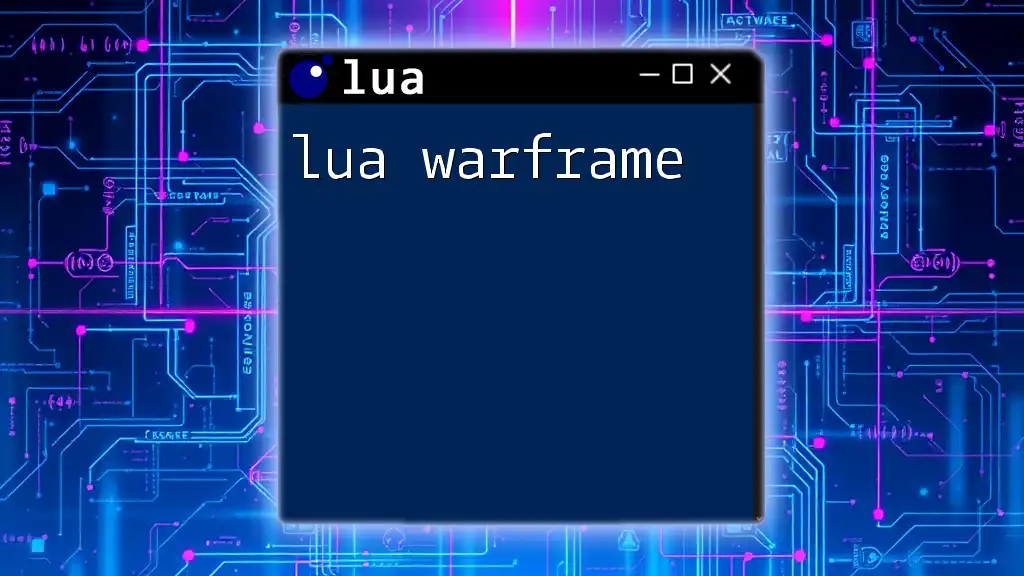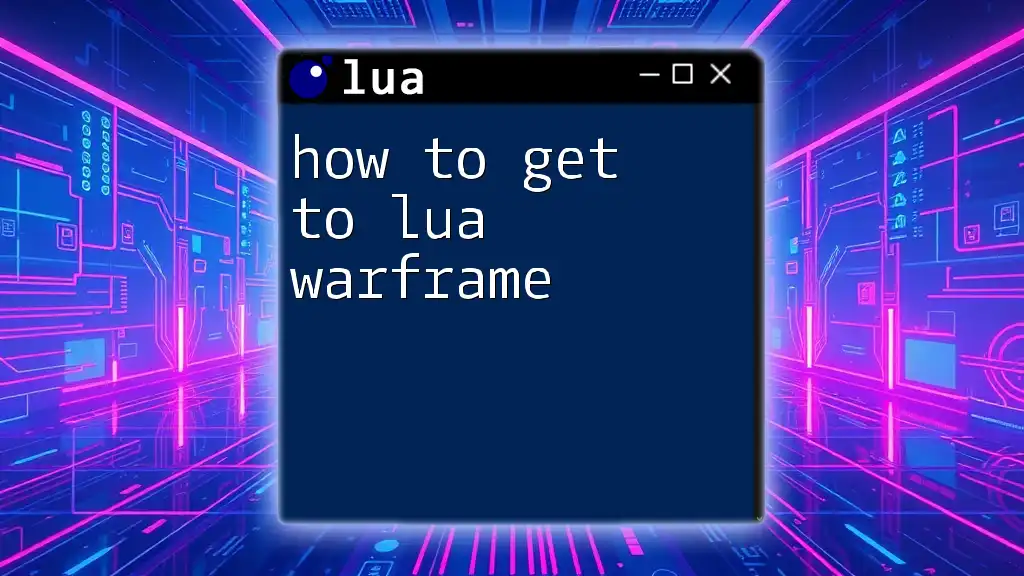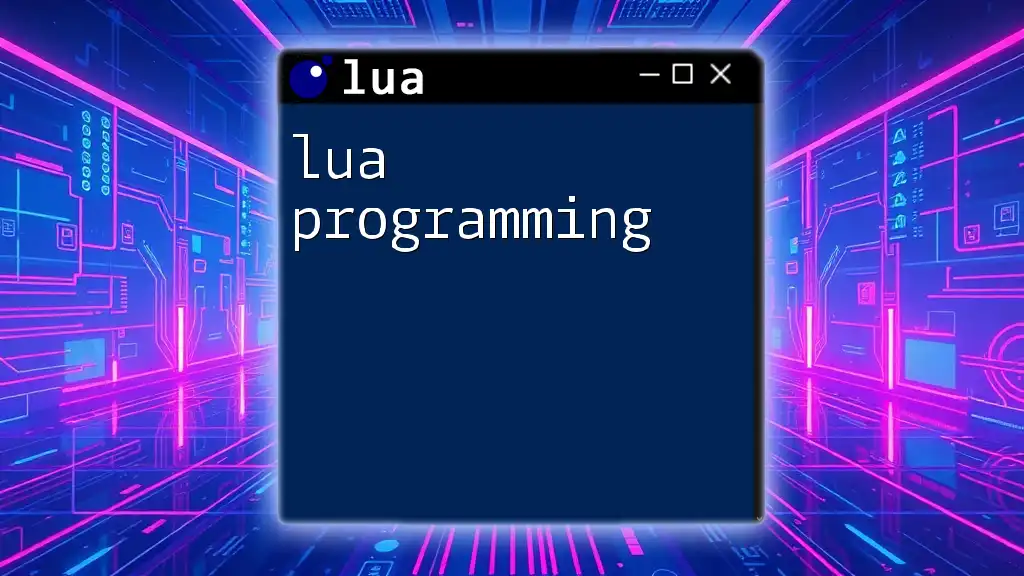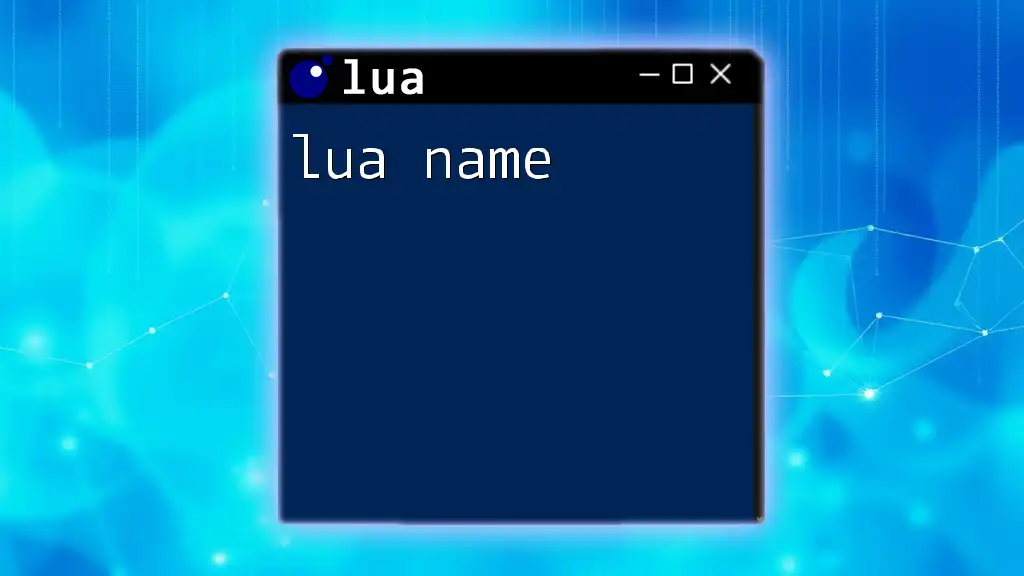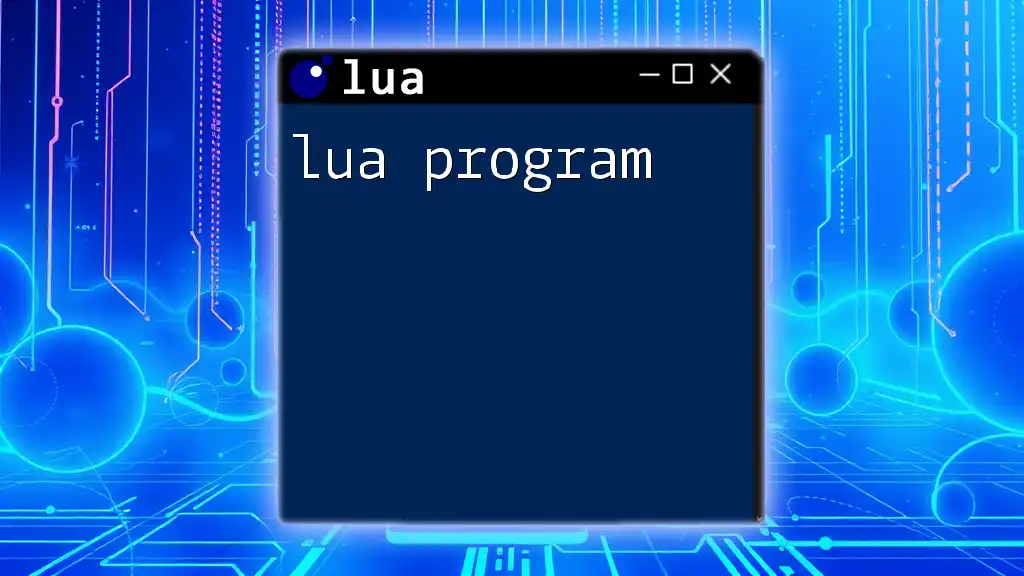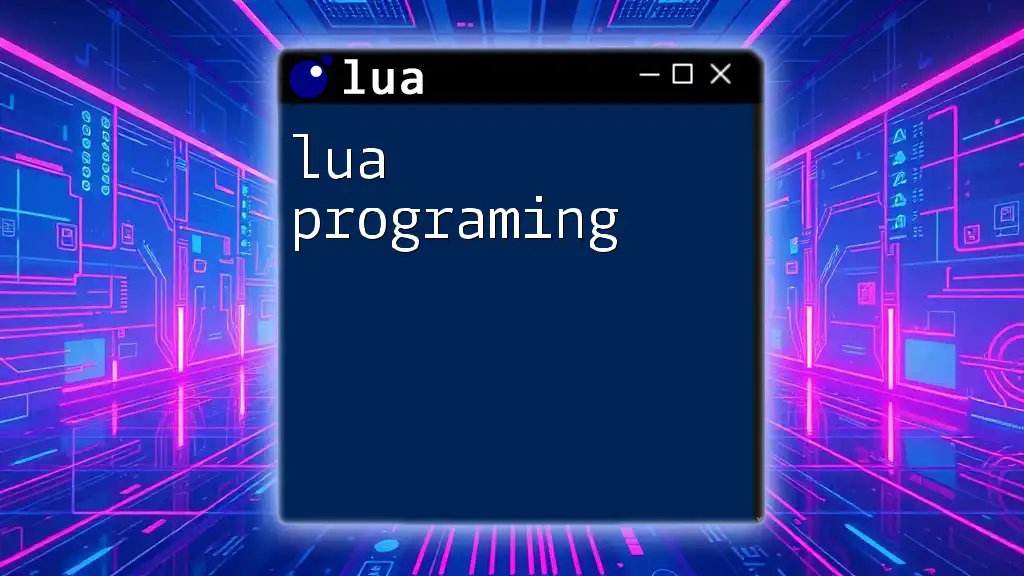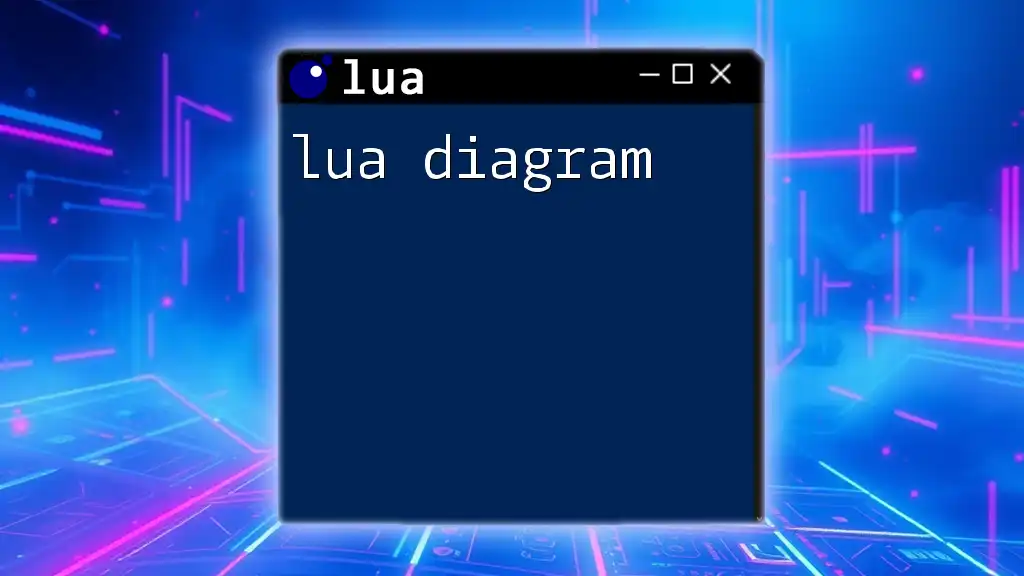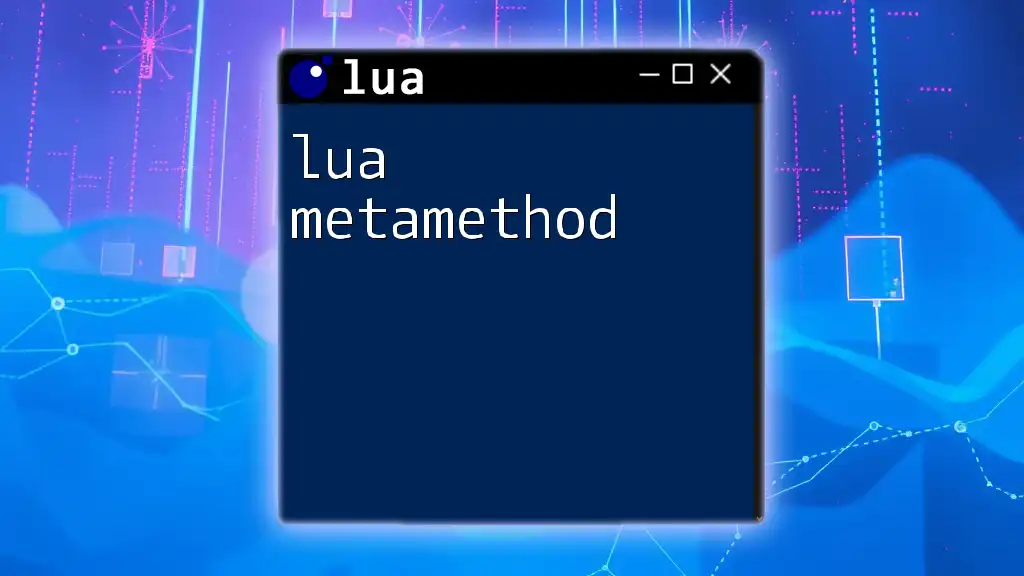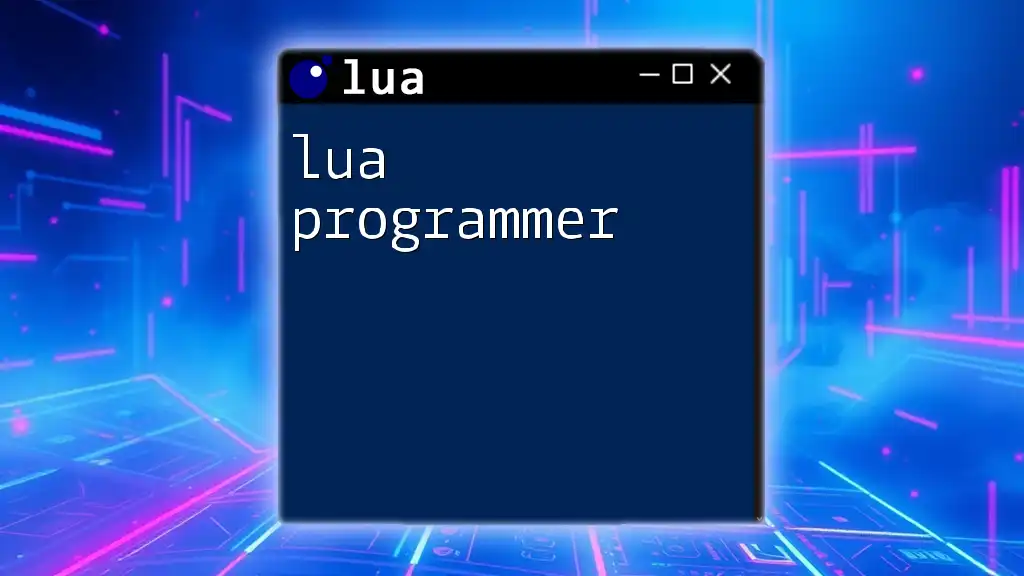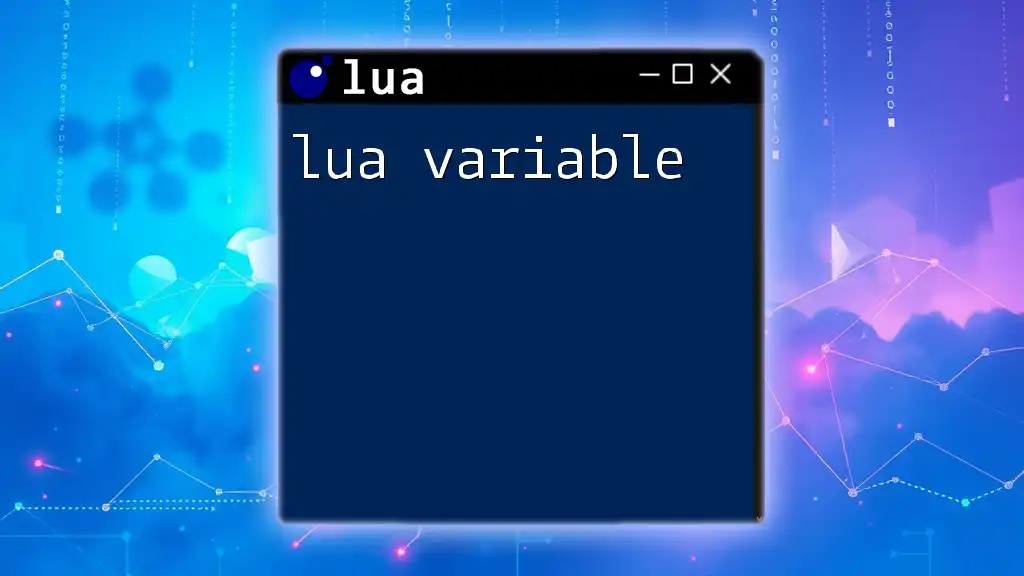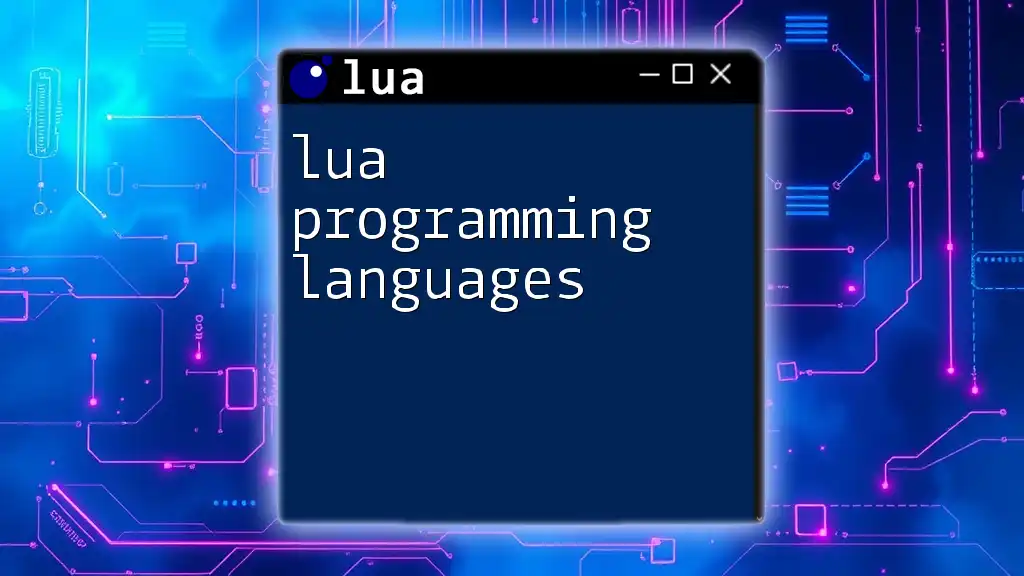In Warframe, Lua is used to create and interact with custom scripts for game modifications, enabling players to enhance their gameplay experience through automation and specific commands.
Here's a simple Lua script example that could be used in this context:
-- Example: Print a message when a player logs in
playerLogin = function(playerName)
print("Welcome to Warframe, " .. playerName .. "!")
end
playerLogin("Tenno")
What is Lua?
Lua is a powerful yet lightweight programming language that is widely recognized for its simplicity and flexibility. Its simplicity makes it an ideal choice for game development, particularly for scripting purposes. In the world of gaming, Lua serves as a bridge between programming logic and gameplay mechanics, allowing developers and players alike to create custom interactions, mods, and more.
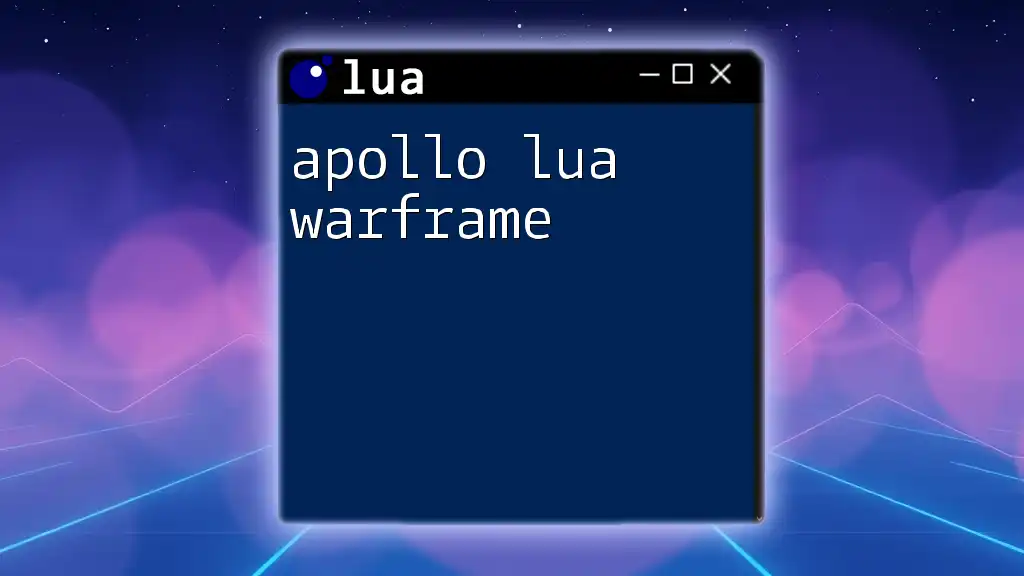
Why Lua Matters in Warframe
In Warframe, Lua scripting is particularly significant as it enhances gameplay, contributes to modding, and fuels community-driven content creation. Players can utilize Lua scripts to automate tasks, create unique mods, and optimize their gameplay strategies. Understanding how to use Lua effectively can significantly enrich the Warframe experience, opening up new avenues for customization and creativity.
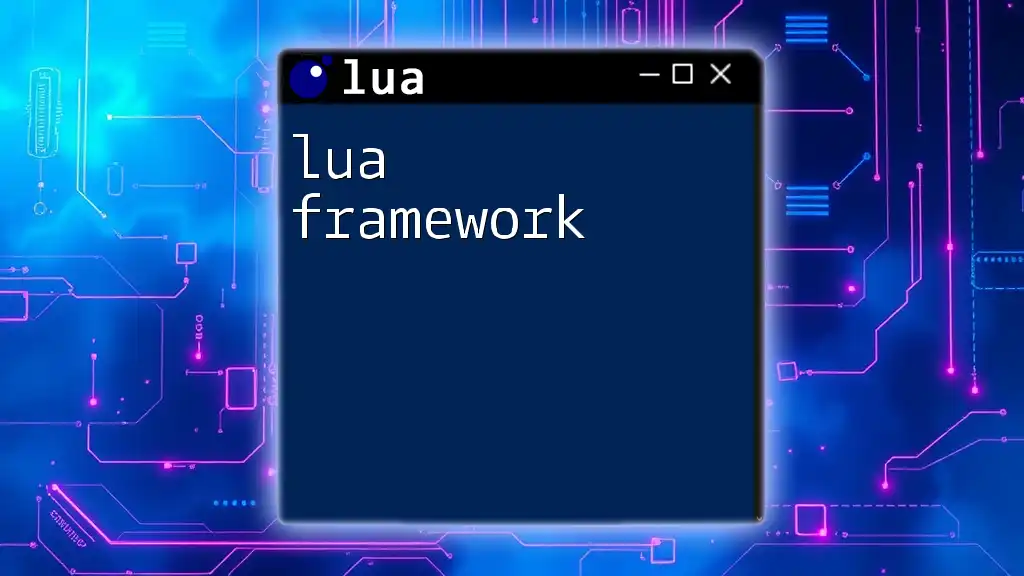
Getting Started with Lua
Before diving into scripting within Warframe, it's essential to familiarize yourself with Lua. Start with the official Lua documentation, which provides comprehensive resources for learning the language. Additionally, tools like the Lua interpreter can aid in testing your scripts locally.
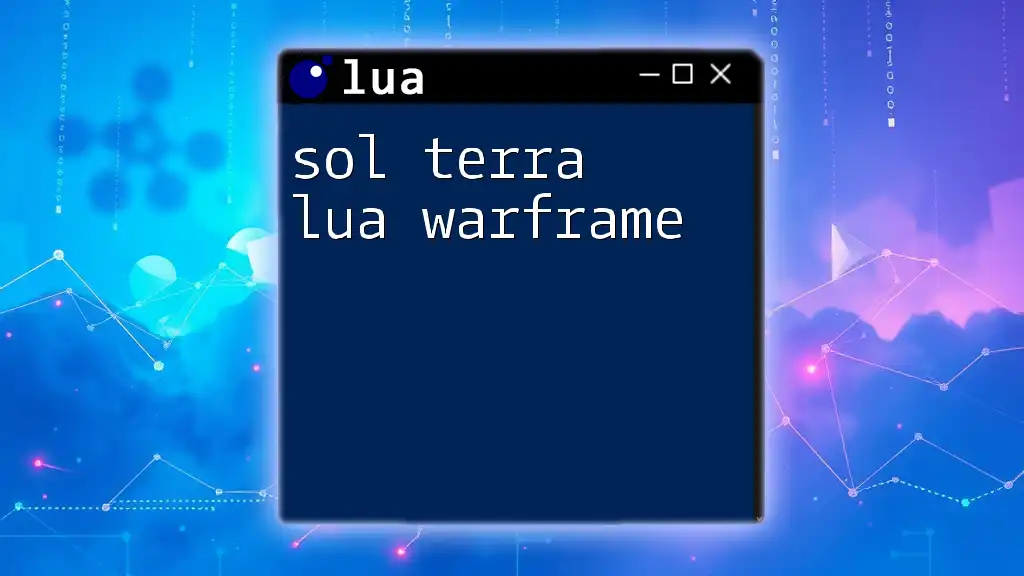
Lua Syntax Overview
Lua syntax is clear and straightforward, which is part of its appeal. Below are some fundamental elements of Lua syntax that you should know:
-
Variables: Variables in Lua can hold various data types and are declared simply by assigning a value.
-
Data Types: Lua supports multiple data types including strings, numbers, tables, functions, and booleans.
For instance, consider the following example of variable declaration:
local playerName = "Ash"
local playerLevel = 30
Understanding Variables
Variables are the building blocks of Lua scripts. Declaring a variable involves defining its name and the value it holds. In Lua, variable scope is important, as it dictates where the variable can be accessed in your code.
Core Data Types in Lua
Lua primarily uses the following core data types:
-
Strings: Enclosed in double or single quotes.
local warframeName = "Excalibur" -
Numbers: Lua has a single number type that represents both integers and floats.
local health = 100 -
Tables: Lua’s primary complex data structure, used for creating arrays, dictionaries, and even classes.
local warframeAbilities = { "Slash Dash", "Radial Javelin", "Super Jump" }
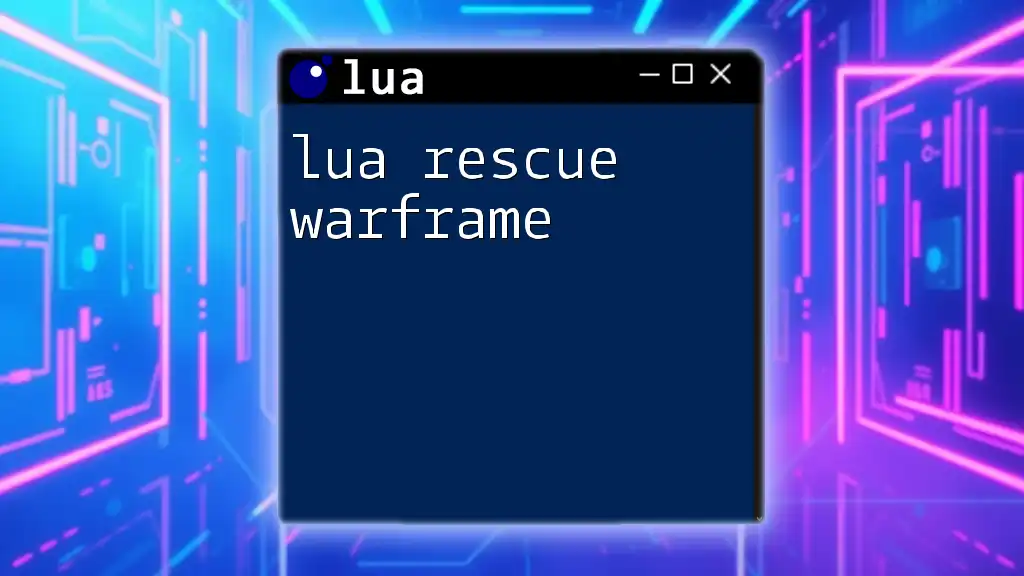
Defining and Calling Functions
Functions are another critical aspect of Lua in Warframe. They allow you to encapsulate reusable code that performs specific tasks. Here’s a simple function definition:
function calculateDamage(baseDamage, critModifier)
return baseDamage * critModifier
end
In this example, `calculateDamage` takes two parameters, `baseDamage` and `critModifier`, and returns the product.
Parameters and Return Values
Functions in Lua can accept parameters, enabling you to pass data dynamically. Understanding how to manipulate these parameters is crucial for effective scripting.
For instance, the following code demonstrates a function with parameters and a return value:
function greetWarframe(warframe)
return "Welcome, " .. warframe .. "!"
end
local welcomeMessage = greetWarframe(warframeName)
print(welcomeMessage) -- Output: Welcome, Excalibur!
Common Lua Built-in Functions Used in Warframe
Lua comes with several built-in functions that can simplify tasks inside Warframe. Some commonly utilized functions include:
- `print`: Outputs text to the console.
- `table.sort`: Sorts table entries.
- `math.random`: Generates random numbers, useful for random drops or effects.
Here’s a snippet demonstrating the use of `math.random`:
math.randomseed(os.time()) -- Initializes the random number generator
local randomHealth = math.random(50, 100) -- Generates health between 50 and 100
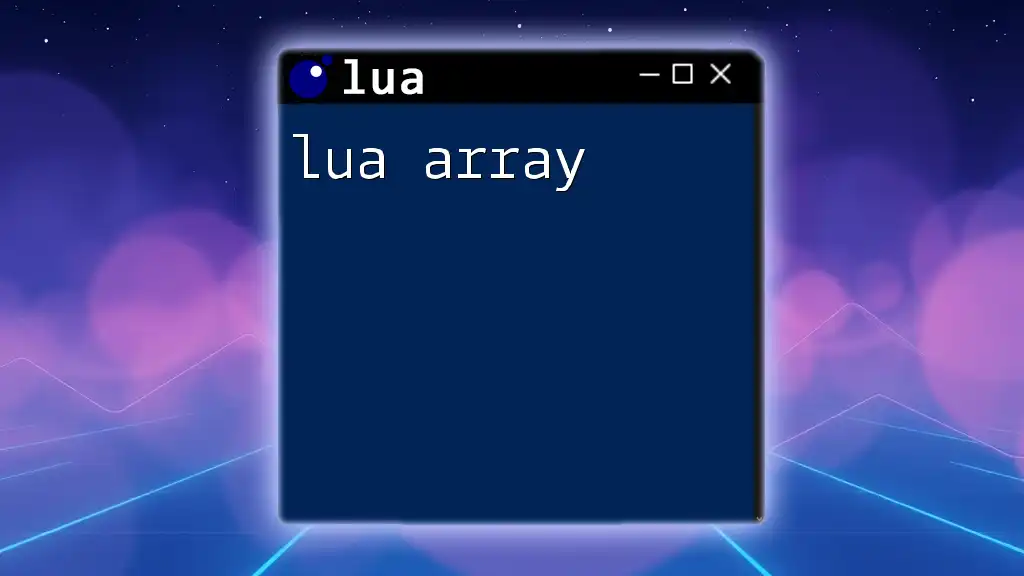
Tables in Depth
Tables are an incredibly versatile aspect of Lua and are used extensively in Warframe for managing game data. A table can represent lists, dictionaries, or even objects.
To create and manipulate tables, you can use the following syntax:
local playerStats = {
health = 150,
shields = 100,
energy = 75
}
print("Player Health: " .. playerStats.health) -- Output: Player Health: 150
Metatables and Their Benefits
Metatables allow Lua tables to have behaviors similar to object-oriented programming. They enable you to define custom behaviors for operations like addition or indexing.
For example:
local playerMeta = {}
function playerMeta.__index(table, key)
return 0 -- Default value for missing keys
end
local player = setmetatable({}, playerMeta)
print(player.health) -- Output: 0
Here, `playerMeta` defines what happens when a key is not found in the `player` table.
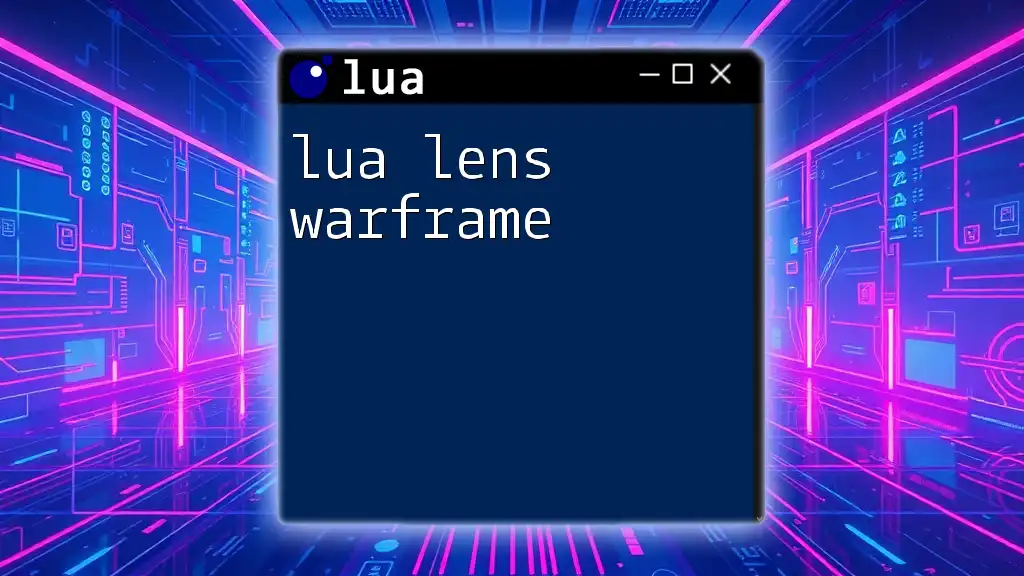
Basic Error Handling Techniques
Handling errors gracefully is crucial for maintaining smooth gameplay. Lua provides `pcall` (protected call) and `xpcall` for this purpose.
For example:
local function unsafeFunction()
error("An error occurred!")
end
local success, err = pcall(unsafeFunction)
if not success then
print("Error: " .. err)
end
With `pcall`, any errors raised within the function are caught, allowing you to respond appropriately.
Debugging Lua Scripts
Debugging can be challenging, but Lua offers some helpful tools. You can utilize print statements to inspect variable values as your script runs. Additionally, third-party debuggers like ZeroBrane Studio can facilitate step-by-step debugging in Warframe scripts.
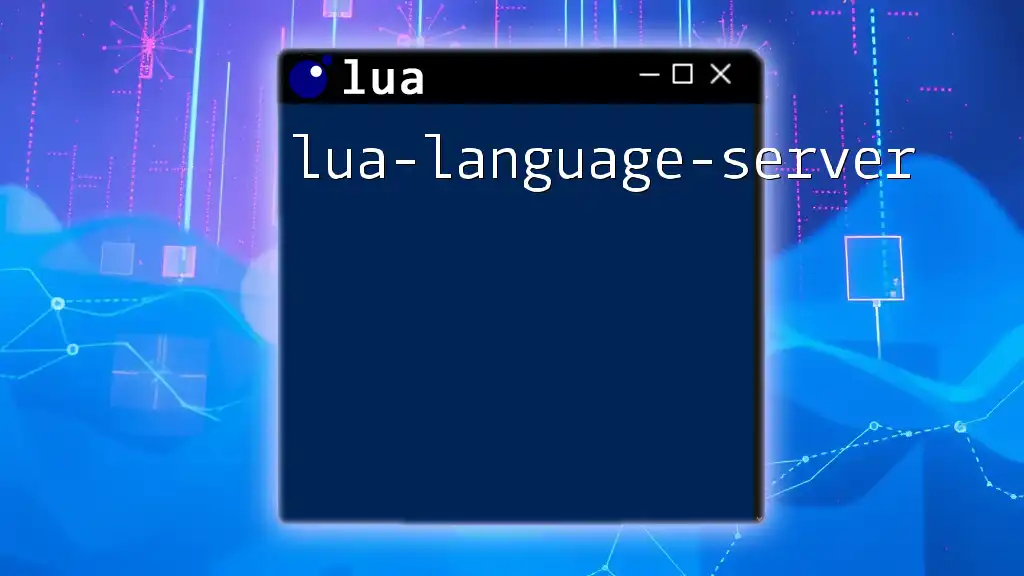
Creating Custom Mods
For players interested in modding, Lua offers vast possibilities. Writing custom mods allows you to personalize your Warframe experience significantly. Here is a basic template for a mod script:
local function customMod()
-- Define mod behavior here
end
From here, you can expand the `customMod` function to create your unique gameplay modifications based on your preferences.
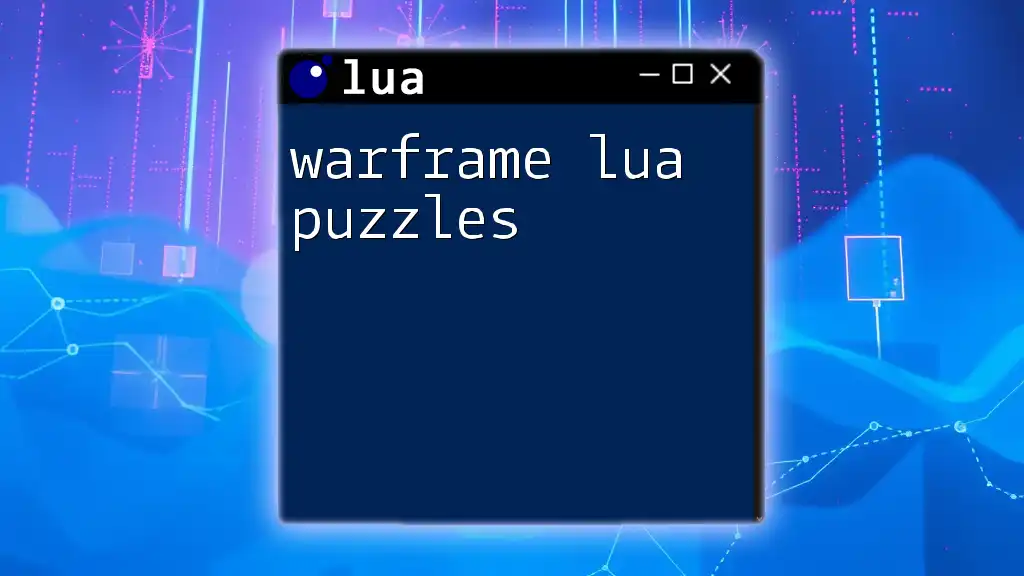
Scripting Events and Triggers
Event-driven scripting is essential in Warframe, allowing developers to react to in-game events. For example, you can create an event handler for when a player takes damage:
function onPlayerDamage(player, damage)
player.health = player.health - damage
print("Damage taken! Current Health: " .. player.health)
end
Using such event handlers ensures that your scripts can dynamically respond to gameplay events efficiently.
Where to Find Lua Scripts for Warframe
The Warframe community is rich with resources for Lua scripts. Websites like GitHub, gaming forums, and modding communities often host repositories of scripts that you can use to enhance your gameplay.
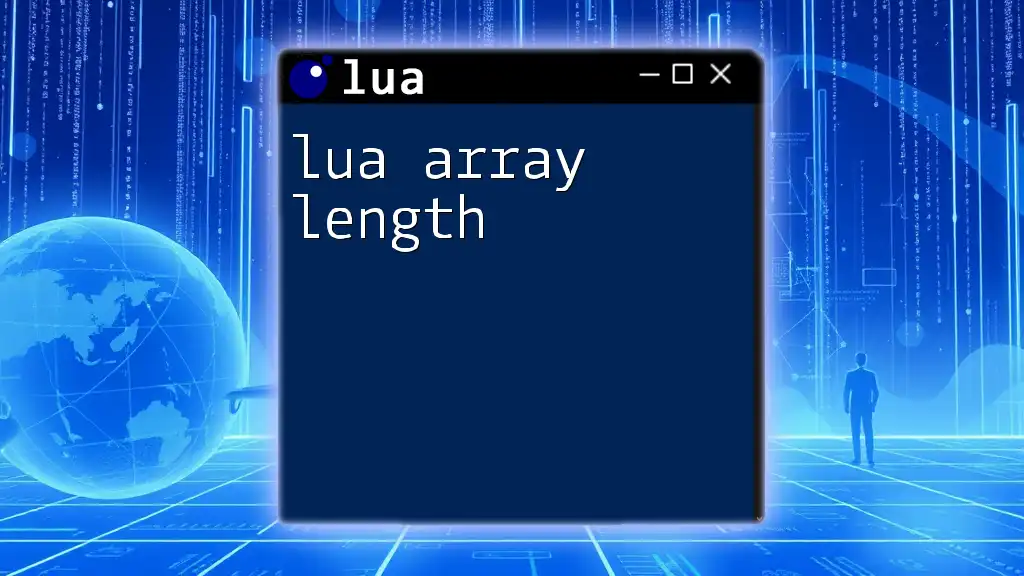
Contributing to the Warframe Lua Community
Getting involved in the Lua community for Warframe not only enriches your understanding but also helps others. Share your scripts, provide feedback, and collaborate on projects to contribute effectively. Engaging with others can inspire you to explore new ideas and solutions.
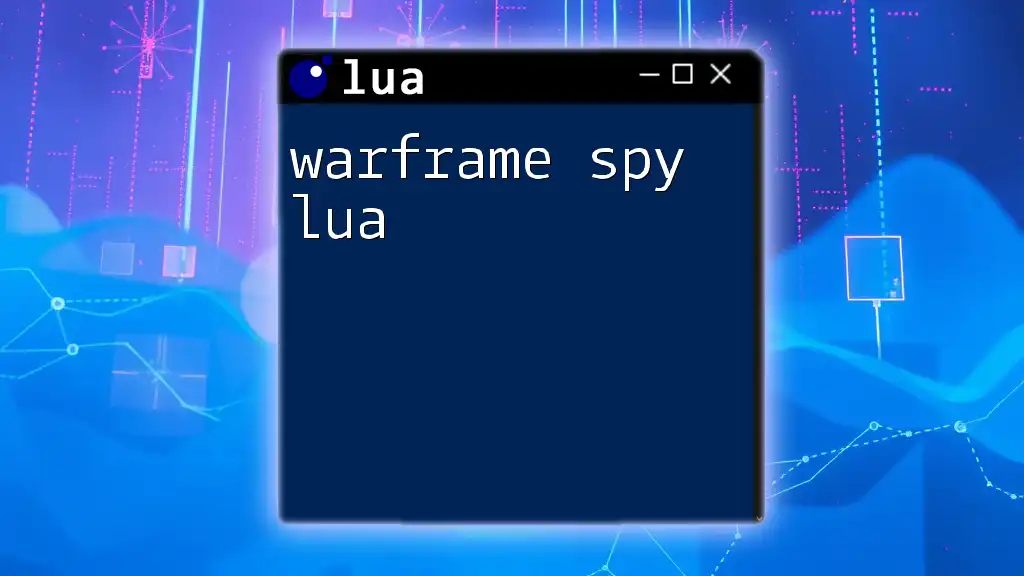
Recap of Lua’s Impact on Warframe
To conclude, Lua scripting plays an integral role in enhancing the Warframe experience. By mastering Lua, you open yourself up to an array of possibilities, from creating custom mods to automating complex tasks.
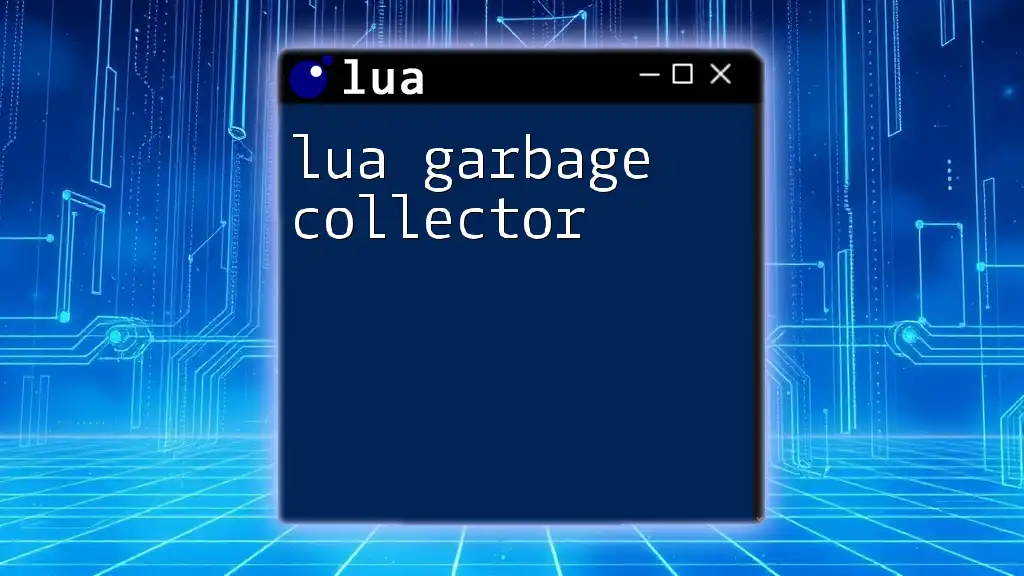
Final Thoughts and Next Steps
Embrace the world of Lua in Warframe. Continue practicing, collaborating, and experimenting with your scripts. The more you learn about Lua, the more you can customize and tailor your Warframe experience, making it uniquely yours. Happy scripting!

